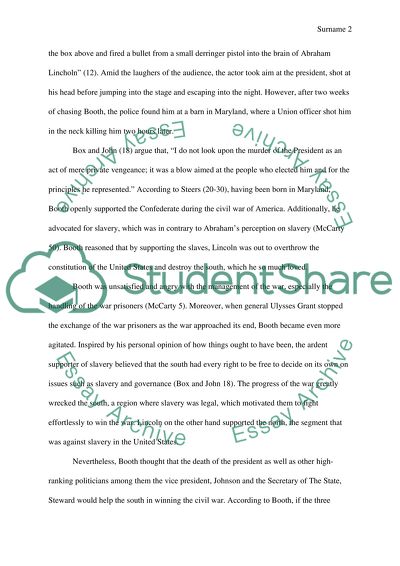Cite this document
(“The Assassination of Abraham Lincoln Research Paper”, n.d.)
Retrieved from https://studentshare.org/history/1484610-the-assassination-of-abraham-lincoln
Retrieved from https://studentshare.org/history/1484610-the-assassination-of-abraham-lincoln
(The Assassination of Abraham Lincoln Research Paper)
https://studentshare.org/history/1484610-the-assassination-of-abraham-lincoln.
https://studentshare.org/history/1484610-the-assassination-of-abraham-lincoln.
“The Assassination of Abraham Lincoln Research Paper”, n.d. https://studentshare.org/history/1484610-the-assassination-of-abraham-lincoln.


